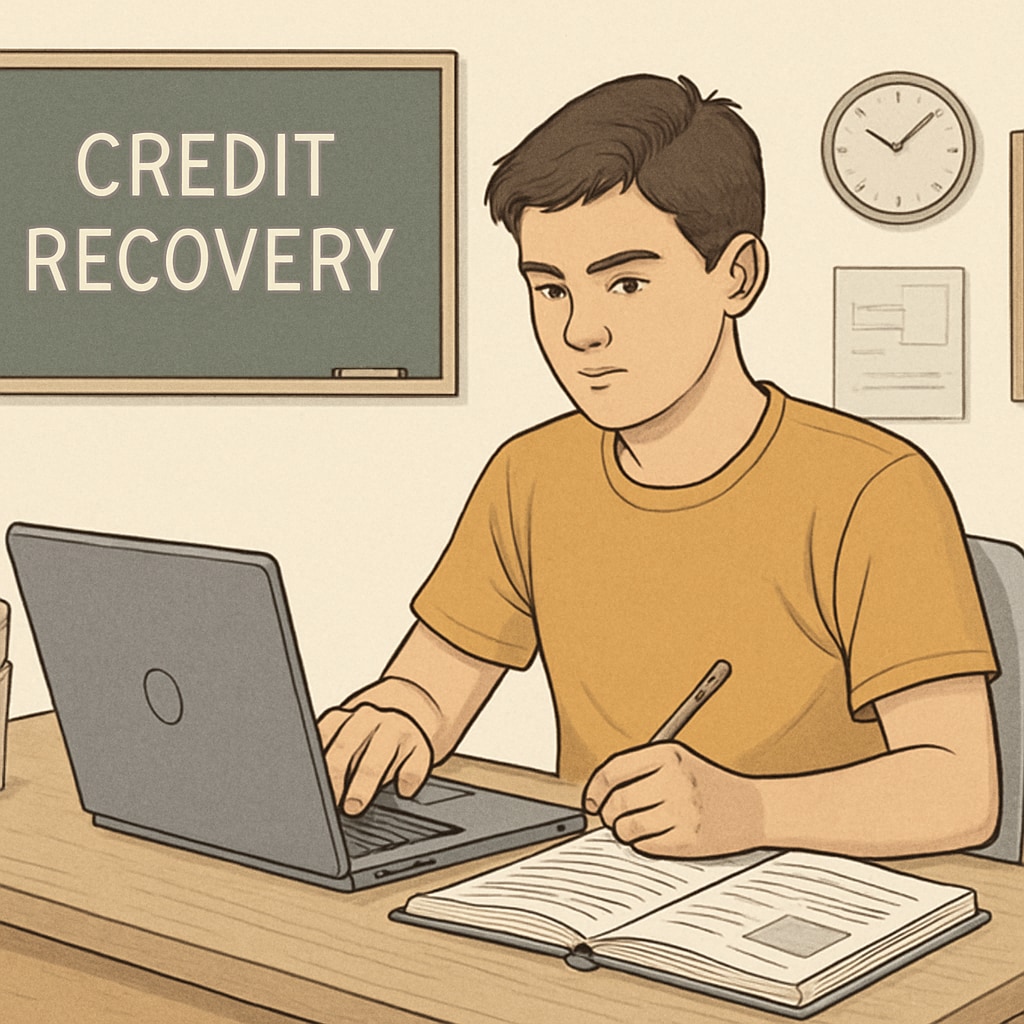Struggling with credit deficiency in high school can be a daunting challenge, but it’s not the end of the road. Many students who find themselves falling behind in credits worry about their ability to catch up and graduate within the standard timeframe. The good news is that, with proper planning, creative solutions, and a positive mindset, it’s entirely possible to recover and graduate on time. This article will guide you through practical strategies to bridge the gap and thrive academically, even in the face of adversity.
Understanding the Impact of Credit Deficiency
Credit deficiency occurs when students fail to meet the required number of credits for their grade level or graduation. This can result from various factors such as poor academic performance, missed school days, or challenges in balancing extracurricular and academic commitments. The effects can be serious, including delayed graduation, increased stress, and limited career or college opportunities.
However, recognizing the issue early and taking proactive steps is key to overcoming it. It’s important to assess your current standing with the help of your school counselor and identify how many credits you need to recover in the remaining years of high school.

How to Catch Up on Credits in High School
Recovering from credit deficiency requires a combination of efficient planning, leveraging available resources, and staying committed to your goals. Here are some actionable strategies:
- Enroll in Credit Recovery Programs: Many schools offer credit recovery classes designed to help students make up missed credits. These programs are often available during summer school, after school, or online.
- Take Online Courses: Platforms like Khan Academy or other accredited online education providers can offer flexible options to earn additional credits. Be sure to check with your school for approved courses.
- Double Up on Classes: With your counselor’s approval, you may be able to take extra classes during the school year to replace lost credits. This option requires strong time management skills to avoid burnout.
- Consider Tutoring: If certain subjects are causing repeated failures, working with a tutor can provide targeted support and help you improve your understanding.
- Explore Dual Enrollment: Some high schools allow students to take college-level courses that count for both high school and college credit, helping you recover while getting a head start on higher education.
For more information on credit recovery, you can refer to resources like the Credit Recovery page on Wikipedia.

Building a Supportive Environment for Success
Recovering academically is not just about the coursework—it’s also about sustaining the right environment and attitude. Here are a few tips to set yourself up for success:
- Stay Organized: Use planners or apps to keep track of deadlines, assignments, and exams. Staying on top of your schedule minimizes the risk of falling behind again.
- Seek Support from Teachers and Counselors: Regularly communicate with your teachers and school counselor. They can provide guidance, monitor your progress, and suggest additional resources.
- Balance Your Commitments: While it’s important to recover credits, overloading yourself can lead to burnout. Prioritize your mental health and maintain a balance between academics, extracurriculars, and self-care.
Additionally, you can find more tips on academic success through trusted educational sources such as Education on Britannica.
Maintaining a Positive and Resilient Mindset
Finally, remember that recovering from credit deficiency is a marathon, not a sprint. Challenges will arise, but resilience and determination can help you overcome them. Celebrate small victories, stay focused on your long-term goals, and avoid comparing yourself to others. Everyone’s academic journey is unique.
Keep in mind that setbacks don’t define your future. With a clear plan and consistent effort, you can turn your high school experience around and graduate on time.
In conclusion, facing credit deficiency in high school can be intimidating, but it’s far from insurmountable. By leveraging available resources, staying organized, and maintaining a growth mindset, you can transform challenges into opportunities for growth and success. Graduation is within your reach—take the first step today!


